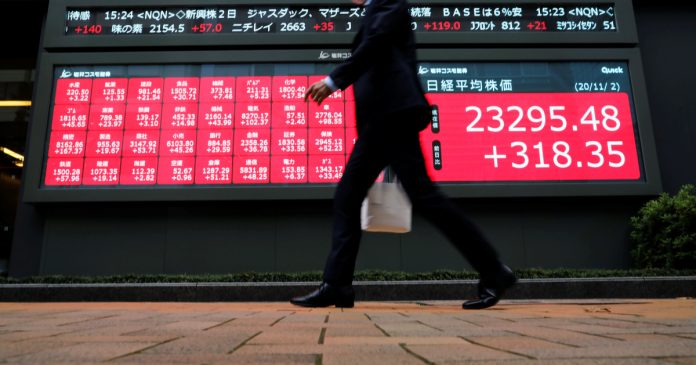[ad_1]
Government issues urgent requests for more syringes for the inoculation drive that begins on Wednesday.
Fears are growing in Japan – where an inoculation drive against COVID-19 will begin on Wednesday – that millions of doses of Pfizer vaccine could be wasted because of a shortage of special syringes that maximise the number of shots from each vial.
The government has made urgent requests, but manufacturers are struggling to ramp up production fast enough, creating the latest headache for Prime Minister Yoshihide Suga, who suffers from weak public support.
“We are still trying to secure these special syringes,” Chief Cabinet Secretary Katsunobu Kato said on Tuesday.
Japan, with a population of 126 million, last month signed a contract with Pfizer Inc to procure 144 million doses of its vaccine, or enough for 72 million people.
One vial is meant to contain six shots, Pfizer says, but it takes special syringes that retain a low volume of the solution after an injection to extract six doses, while the standard syringes the government has stored in preparation for the drive can only get five shots a vial.
‘Take some steps’
When asked last week, Kato did not directly answer questions about whether the shortage of the ideal syringe meant the number of shots Japan can administer would be reduced, but on Tuesday he conceded without it there would be wastage.
“When it comes to what’s left in vials and syringes, what’s unused will be disposed of,” Kato said.
Both a Pfizer Japan spokeswoman and a Japanese health ministry official declined to say whether the contract to supply Japan with 144 million doses of vaccine by the end of the year is based on six doses being taken from each vial.
Inoculating Japan’s population swiftly is a top priority for Suga’s government as he is determined to hold the Tokyo Olympics this summer, after the Games were postponed for a year because of the coronavirus pandemic.
In a bid to minimise the amount of vaccine left unused in syringes and vials, the government is asking medical equipment manufacturers to boost output of the low dead-space syringes, but there are doubts whether that can be done quickly enough.
‘Ramp up sharply’
Nipro Corp, which runs a Thailand plant capable of making 500,000 units a month, said it planned to boost its monthly capacity to a few million, but it would take up to five months to reach that goal.
“We are getting a request from the health ministry and we need to take some steps. But it’s not something we can do overnight. It’s another four to five months before we can ramp up sharply,” a Nipro spokeswoman said.
Another major Japanese medical gear maker, Terumo Corp, said it started developing syringes fit for extracting six doses from a vial, but it was too early to say when it can start commercial output.
Although daily cases have been in decline in recent weeks in Japan after peaking in early January, Tokyo and nine other prefectures are still under the coronavirus state of emergency.
Japan has seen cases total approximately 418,000 with 7,042 deaths, according to public broadcaster NHK.
[ad_2]
Source link











